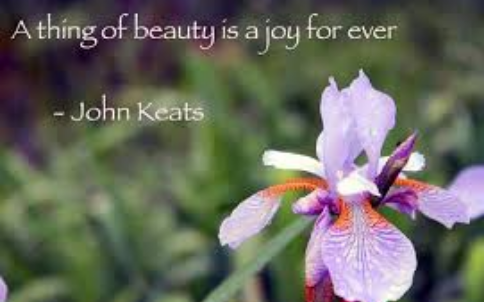When man was just a caveman in the primitive world, whose sole purpose of living was survival, he was no different from other animals. With a stone axe or longbow and arrows in hands, he ran after other brutes. He knew just one thing…hunger and in little probability, a bleak idea that by eating he would survive. But when humans started forming themselves into groups and hunting together; that ought to be the first step in the formation of future societies, villages and Kingdoms. The basic requirement for the subsistence of a society is communication. People must have communicated in those primitive times through gestures and by making unintelligible sounds. But that was not enough. Their growing needs needed a more sophisticated tool to communicate. Hence, the important first human invention must be the knitting of language(s).
Humans are different
But basically humans have always been different from other animals and naturally humans required many centuries to realize this truth and more of what the biased God had bestowed on them. Humans were never satisfied with the rudimentary cants they developed for communication. They improved them by using more sounds, that well emphasised their physical needs as well as their inner feelings, thoughts, emotions and sentiments. They started twisting tongues, curving lips, fluttering eyes and using other facial muscles and limbs to add extra strength to their vocal expression. They learned to smile, laugh, guffaw, mastered sounds from low mumbles, murmurs, grumbles to deafening shouts, yells and screams and successfully mingled them with the cants they created to perfect their expression.
Even when basic cants and dialects became advanced languages…they never thought their task was complete. I guess, that’s the time they tried to add aesthetics to language and strained to embroider their words. I am not a historian, archaeologist or a linguist. I have no idea, when this all started, but that’s the time when ordinary, dross prose started wearing new beautiful attires. Yes, that’s then poetry was born.
Sanskrit, the first, eternal language!
But, the Indian school of thought has been quite different from that of the West. The Hindu perception has been that, Sanskrit, the language of Gods and Demigods existed even before the Creation on Earth and that humans directly inherited Sanskrit as their first language from the Gods. They believe that the Creation was not done just for once by the God. There was Creation, then after eons (yugas) eschaton, again there was Creation and eschaton and this cycle continued for several times; but Sanskrit remained eternally; coming back to them at the time of every new Creation. Even modern archaeology has no evidence to prove that the human evolution in Indian continent took place on the same lines it happened in the West, starting from a cavemen.
Of course, at least for the present, it’s beyond the intellectual and technical scope of modern historians and archaeologists to grope the roots of Indian rudiments. Rather they consider it more convenient to brush aside all age old Indian facets of history as mere mythological lies. Time can only prove this.
Poetry, an embellished prose
Whatever may be the roots of language and the way it evolved over epochs up to the modern times, the human endeavour in finding beauty and aesthetics in their oral expression had finally fructified as POETRY. Humans must have never satisfied with the prose they used, considered it dross and hackneyed and always tried to add beauty and a little fun that’s inherent to human trait to the languages they used. The product…a much enhanced and beautified language, came to be known as POETRY.
Yes, yes…poetry is an embellished prose, a disciplined way of language expression and a cathartic splurge of suppressed inner emotions.
The oddity of poetry
Poetry is not prose. Poetry is a field of experimentation, that helps the language to grow, expand its range of usage and acquire new glows of beauty and grace. All great poets were insanely unconventional. All the prosodic tinkering like meter, rhyme, rhythm, inversions etc. are meant to writhe, warp and knot the language into unconventional shapes to bring out new allurements and grandeur to the otherwise routine parlance. Poetry is also the word form of music. By placing the moving accents in rhythmic patterns that bring out the natural and inherent melody of words, you achieve the ultimate purpose of poetry. Many confuse poetry to be broken lines of perfect syntax with end-rhymes. Yes, you have to follow grammar in poetry as well. But the lines (prosodically referred to as feet) must flow in accordance with the emotions flowing out of your heart, but soon should take systematic patterns, so as to convey the idea or concept, in an enamouring way without disturbing the density of intended feel, emotions and sentiments.
Every letter is a mantra
As per Hindu philosophy, every letter and every word is a mantra. Arguably Vedas were the first pieces of metrical verse composed in Sanskrit. Vedas were never reduced to writing; but were propagated through oral teaching and continued recitation through generations of Guru-pupil traditions. The learning of Vedas has always been through the media of music, using swaras (pitches of sound) like udatta, anudatta etc. When the inherent divine strength of ‘word’ and ‘letter’ assume the divine force of music, these hymns become sources of infinite Godly power; that effectively expels all sinful thoughts from minds and cleanses the human aura as well as the Earth atmosphere. Very recently scientists found that Shakespeare’s sonnets in iambic pentameter helped in curing autism in children.
Hence let us realise the divine quality of poetry and the infinite holy benefits poesy can bestow on us.
Long live good poetry.
-Mahathi.
(First published by Triveni issue of September, 2018)




